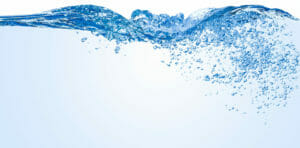
You have likely heard the terms “hard water” and “TDS” before, but do you understand how they impact the water you use every day?
TDS and water hardness can influence everything from the taste of your drinking water to cooking, laundry, and bathing.
What Is Water Hardness?
Water hardness is the sum of calcium and magnesium present in water and is most commonly measured in terms of grains per gallon.
- Hardness is also sometimes represented in milligrams per liter, or parts per million (PPM).
- Hard water gets its name from excessive amounts of minerals that make it more difficult for soap to properly clean – leaving residue behind on dishes and clothing.
- High hardness causes deposition of calcium carbonate (scale) on heating surfaces and can clog pipes, valves, and screens over time.
A lower amount of hardness in water is desired in almost every situation. Water with a total hardness exceeding 3.5 grains per gallon is considered hard.
What Is TDS?
Total dissolved solids (TDS) describes the amount of dissolved material in a water sample. TDS is typically represented in terms of milligrams of material per liter of water (parts per million).
- The biggest contributors to TDS are minerals such as calcium, magnesium, sodium, chlorides, bicarbonate, and sulfate.
- Some dissolved metals and organic material may also contribute to TDS.
- TDS is a good measure of the overall quality of water, but does not indicate the relationship between ions, or if the water is safe to drink.
A lower TDS result indicates more pure water.
How Can You Tell If You Have High Hardness or TDS Issues?
Detecting Hardness in Your Water
- Hardness can be measured using a test kit or by having the water tested in a lab. Hard water will deposit distinctive white residue (scale) around sinks, shower heads, and on dishes.
- Hardness varies by region but is usually more consistent across a particular area than TDS is a water testing kit will typically use color changing test strips and a chart that can help you determine the approximate level of hardness in your water.
Detecting TDS in Your Water
- The best way to measure the TDS in your water supply is to use a TDS meter. These meters work by sending a pre-determined electrical current through the water, and then measuring how much that current is reduced while passing through the water.
- TDS varies greatly in different regions of the country and can even be extremely different between one town and the next if they are drawing from a different natural water source.
You can also have your water tested in a certified laboratory with an Antunes Water sample analysis kit. The test results will include TDS and hardness among other relevant metric sand will be sent to you along with a custom product recommendation from the Antunes Water Team.
Addressing High Hardness and TDS in Your Water
Fortunately, there are ways to mitigate the undesirable effects of high hardness and TDS.
Water softeners are an excellent choice for removing hardness from your water, and if installed at the water’s entry point, can provide softened water for your entire home.
The best choice for reducing the TDS of your water is a residential reverse osmosis system. Reverse osmosis systems use pressure to force water through a semi-permeable membrane, separating the dissolved solids from the water at the atomic level.
The quality of your water is important to the quality of your life – and you can take control of it today. Antunes Water offers a residential five-stage reverse osmosis system as well as whole home softener systems. These systems complement each other and together will help you to achieve the excellent water quality that you desire.
To learn more, contact the water experts at Antunes Water today.


 7 Easy Benefits of Environmental Sustainability with Home Water Treatment
7 Easy Benefits of Environmental Sustainability with Home Water Treatment